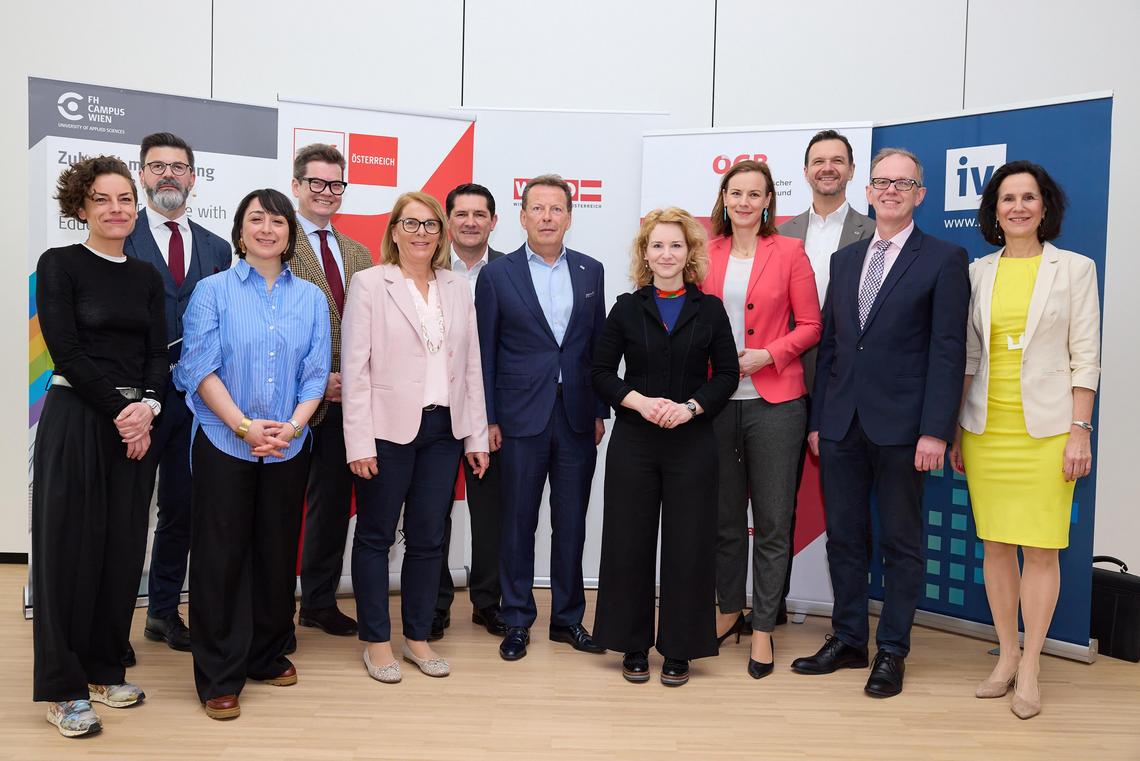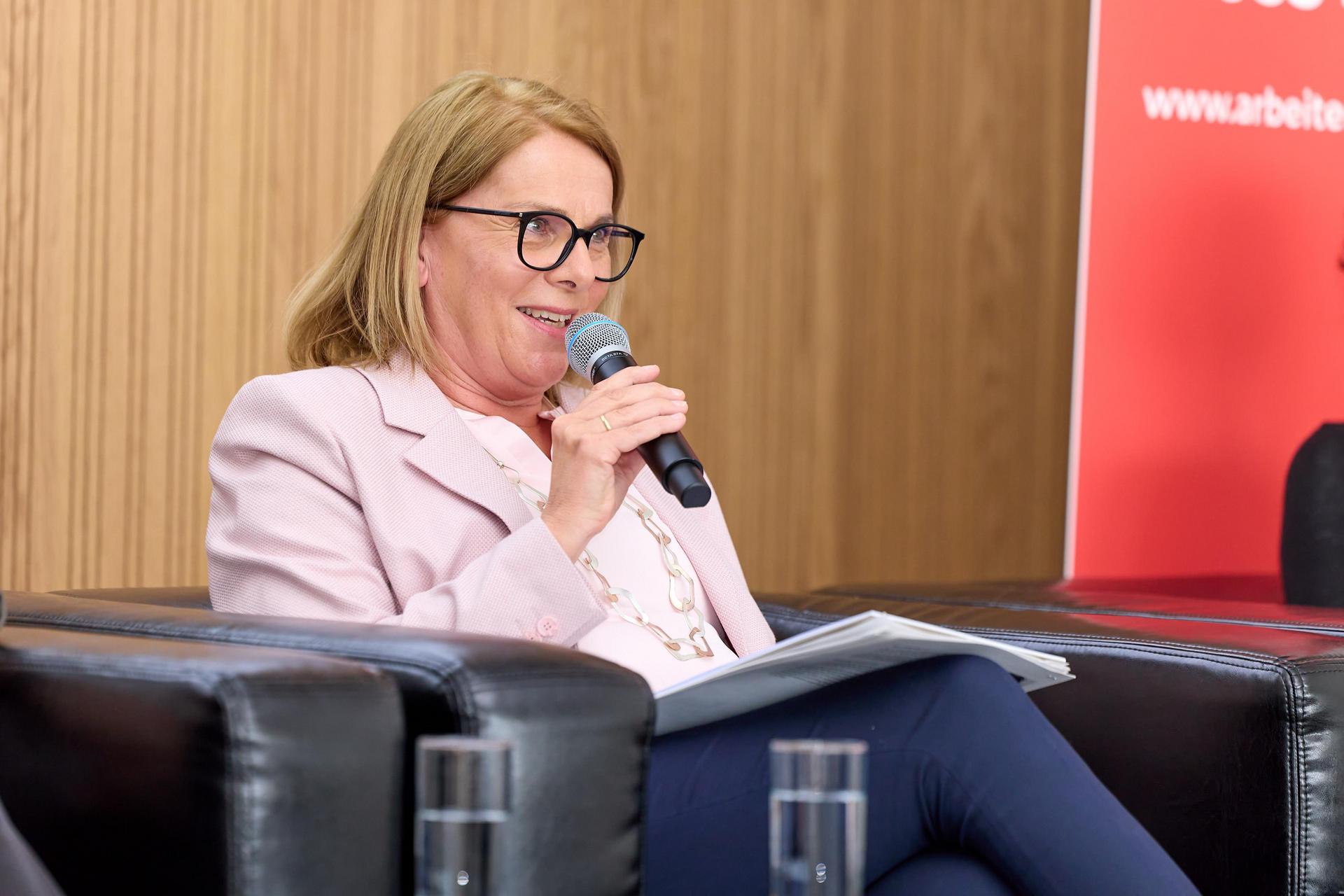To mark the 30th anniversary of universities of applied sciences, a joint position paper was published by the social partners and the Federation of Austrian Industries (IV) with topics such as future-oriented study programmes, modern financing, networking and permeability. The aim is to permanently strengthen and further develop the higher education sector. As part of the presentation on 28 March at FH Campus Wien, the panel discussion ‘Strong universities of applied sciences as knowledge centres for economic and social development’ also took place. Ulrike Prommer, CEO of IMC Krems and President of the Austrian University of Applied Sciences Conference, also took a seat on the panel.
News
30 years of universities of applied sciences: from milestone to future orientation

A look into the future
In the future, universities and universities of applied sciences should increasingly align their study programmes with the need for skilled workers and social change (STEM, health and social affairs). Furthermore, dual study programmes and Bachelor's and Master's professional programmes should be strengthened and supported by state funding.
The increased digitalisation of university teaching, the promotion of AI skills as well as focal points in teaching, the teaching of critical thinking, management skills and international entrepreneurship should turn universities into places of lifelong learning.
In addition, the financing of study places requires further development to meet increasing demands such as digitalisation, internationalisation and socio-ecological transformation. To promote student diversity and ensure a heterogeneous composition, universities and universities of applied sciences should, in addition to and in coordination with the school system, offer individual study counselling and career guidance at an early stage, which, for example, addresses labour market relevance and gender-sensitive job profiles.
Furthermore, students should be able to study smoothly and in a focussed manner by reducing the time and financial burden. This can be achieved through modern, flexible teaching programmes that make it easier to combine studying and working, as well as through extended financial aid and support systems.
All stakeholders agreed on this day: ‘One thing is certain, universities and universities of applied sciences are indispensable for academic vocational training, for shaping the digital and ecological transformation and as partners of the economy and knowledge centres in their regions.’


